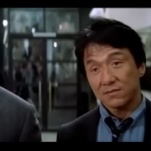Variously identified as "lazy, angry, or defiant" in family therapy, young Robison was a loner who played elaborate pranks on his neighbors and preferred the University Of Massachusetts' engineering labs to junior high. Though he was told he might grow up to be a psychopath, Robison yearned to connect with gearheads and hobos, giving them nicknames and feeding them unending streams of information. After scoring a 96 percent on his GED, Robison dropped out of high school and moved in with a friend's band to tinker with their sound equipment full-time. That eventually led to him going on the road with Kiss as the creator of Ace Frehley's smoking guitar and other novelty instruments. He later became a game designer for Milton Bradley, but company politics and urgings to "be a team player" left him disillusioned with corporate life.
Robison's voice, spare in self-pity but rich in understatement, keeps Look Me In The Eye from becoming an emotionless textbook or an Oprah-friendly weepfest. His diagnosis at age 40 actually came as a "revelation," he says, presenting stories to illustrate his place on the autistic spectrum. (His wife and her sisters, for example, become a study of how his "Aspergian" penchant for logic leads him to openly contemplate whether he married the "best" sister.) The effects of the disorder insulated Robison somewhat from the fallout between his brittle mother and his drunken, abusive father, but he admits his regret that he didn't do more for his now-successful brother, even at a time when he was "just a kid myself." His plea for tolerance for others on the autistic spectrum follows in a similar vein—remorse, but not self-pity, for his treatment in the past, paired with the cautious optimism of finally knowing himself.








































